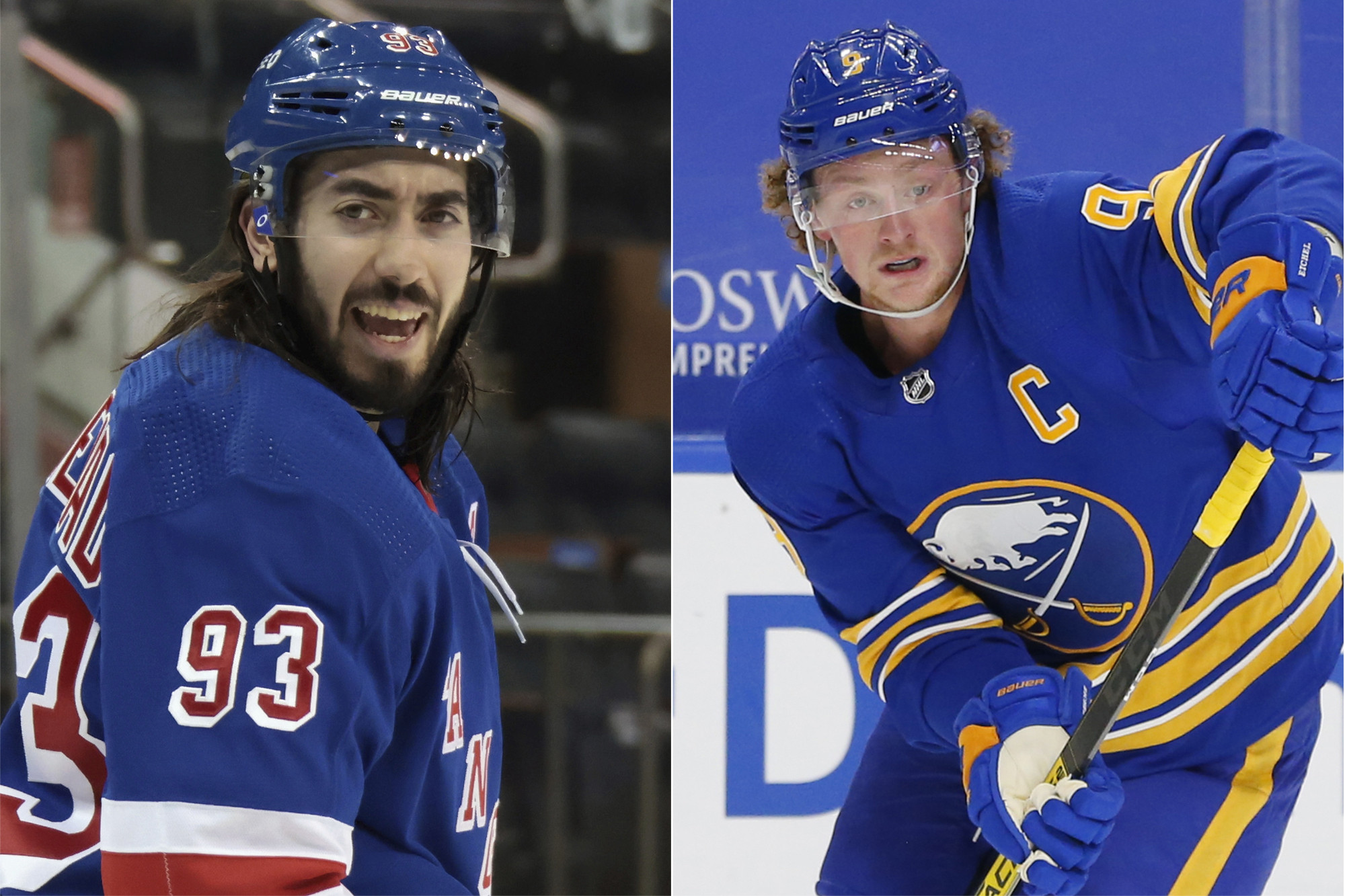More On: brandon drury
Mets rally past Nationals for skid-snapping win in Game 1 of twin bill
Javier Baez homers in debut as Mets rally past Reds in 10
Brandon Drury, Michael Conforto save the day for Mets
Rangers’ Mika Zibanejad-Jack Eichel conundrum could get awkward
The priority for Chris Drury as Rangers general manager comes out of his first entry draft, days away from the opening of the free agent market, is clear, if not simple. And that is not merely to...
More from:
Larry Brooks

Devils pursuing Dougie Hamilton with unique free agency pitch
Pavel Buchnevich trade was painful move Rangers' plan demanded
Barclay Goodrow signing was easy part of tricky Rangers makeover
Rangers mishandling Ryan McDonagh trade has been Lightning boon
Gary Bettman couldn't be more right about playoff expansion, Olympics
The priority for Chris Drury as Rangers general manager comes out of his first entry draft, days away from the opening of the free agent market, is clear, if not simple.
And that is not merely to address the critical matter of Mika Zibanejad’s contract status as No. 93 prepares to enter his walk year, but to resolve it one way or the other. Then, and only then, can Drury train his focus on Jack Eichel, because the one thing we know is: The Blueshirts cannot accommodate both in this flat-cap environment. There isn’t enough creative bookkeeping in the world that would allow for that.
We can report that there have been preliminary discussions between Drury and Zibanejad’s agent, Monir Kalgoum, who happens to be the center’s brother. Our best information at this point is that Zibanejad is seeking a deal that would be at least commensurate with the one under which Eichel is operating in Buffalo. That would entail a commitment of $10 million per year.
The money is one thing. But equally important is term. Zibanejad is going to turn 29 next April. The Rangers are believed to want to hold the contract to five or six years. The player is believed to be asking for seven or eight years. But why wouldn’t he after the Blueshirts signed Chris Kreider to a seven-year deal that began at age 29?

It might be different if Zibanejad were coming off 2019-20, when he thundered through the second half of the season to establish himself, no questions asked, as one of the elite players in the world. He not only scored, he dominated. He went to the tough areas. He won battles. He engaged. He thrived against the Islanders and Caps. He was in the middle of everything and emerged as perhaps the club’s MVP in a year in which Artemi Panarin was a Hart Trophy finalist.
But that’s not the case. We know that Zibanejad was physically and psychologically diminished for at least the first half of the year after the Swede contracted COVID-19 shortly before the opening of training camp. But even after No. 93 regained his equilibrium and his game in mid-March, it wasn’t the same.
Zibanejad went on a goal-scoring spree — he is one of the league’s true snipers — with 17 in his final 25 games, but he was a perimeter player for the most part who appeared averse to contact. Was he protecting himself in the aftermath of his recovery from the virus? Did effects linger? I can’t say, but I do know he was different than not only the previous year but from 2018-19, as well.
And perhaps more telling were his splits, even over the final 25 games in which he recorded 11 goals and 22 points in 12 games against the Flyers, Devils and Sabres while posting six goals and eight points in 13 games against the Islanders, Bruins, Caps and Penguins (with two goals coming in the final period of the final game of the year in Boston).
Does that make Zibanejad a bad person? No. Does that make him a bad player? No. But it is certainly something to consider when weighing whether he is a $70 million player.
Everyone is familiar with the complications attached to Eichel, so there is no need to belabor them here. But health aside, Eichel’s eight-year, $80 million contract would expire at age 30 while a hypothetical Zibanejad seven-year deal would expire at age 35. All $10 millions are not necessarily created equal.
Of course, the cost of Eichel would be compounded by the assets sacrificed in order to obtain the still 24-year-old from the Sabres. Hypothetically, it’s $10 million per plus the value of a package including, say, Vitaly Kravtsov, Zac Jones, Filip Chytil and a first-rounder. So this would not be an apples-to-apples equation as calculated by Drury.
The general manager will make that call, but Zibanejad is in control owning a no-move clause. If the Rangers don’t agree to his terms, the Swede can simply play out the season to free agency. What would that look like if the team has Eichel? What about the chemistry in the room? Awkward.
My sense is that the Rangers would prefer extending Zibanejad rather than acquiring Eichel. But the price has to be right. And if talks with Zibanejad break down, leverage in trade negotiations goes to the Sabres, who don’t seem to be in any hurry at all to finalize the Eichel Saga.
Free agency starts on Wednesday, Drury is looking to add more toughness and role players to the bottom-six mix and he is seeking a physical left defenseman with size. But those tasks are secondary. Resolving the Zibanejad matter is Priority One.
This story originally appeared on: NyPost - Author:Larry Brooks













